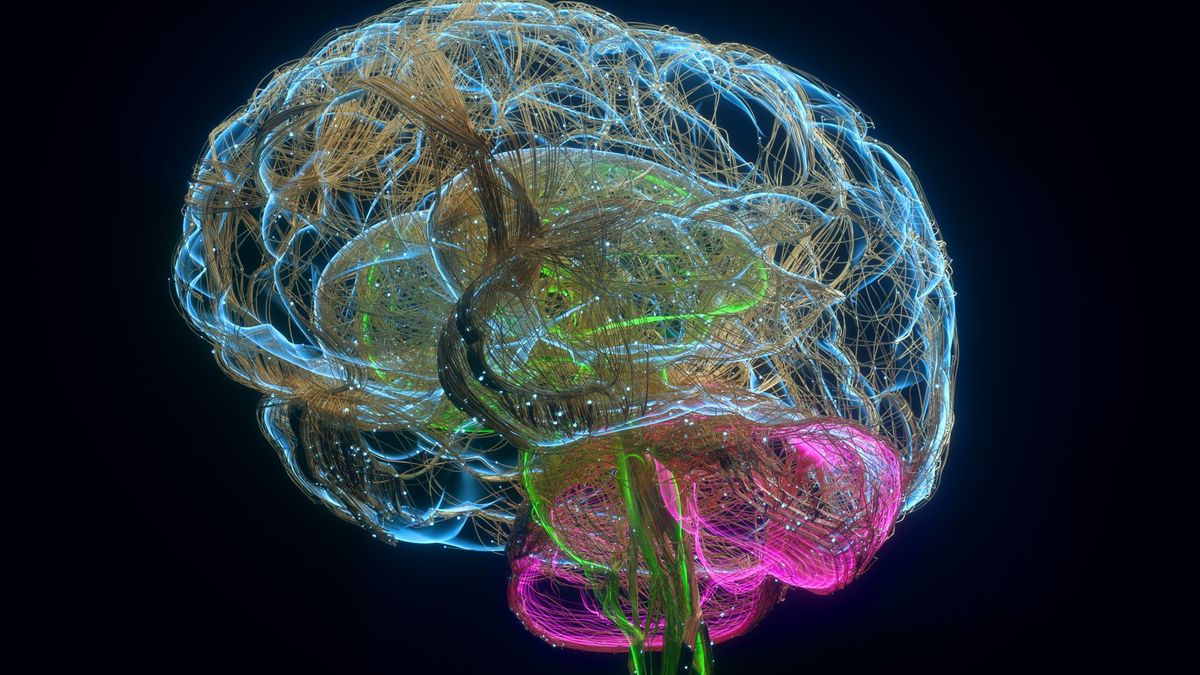The community of microbes that live in the gut, known as the gut microbiome, may have fueled the evolution of humans’ huge brains, a new study suggests.
“Microbiome research has begun to show us exactly how the gut and the brain communicate to influence behavior and overall wellbeing,” said study co- author Katherine Amato, an associate professor of biological anthropology at Northwestern University in Chicago.
“However, this study goes even further to show how what happens in the gut may actually be the foundation that allowed our brains to develop over evolutionary time,” she told Live Science in an email.
The study found that human gut microbes converted food into energy for the brain more efficiently. However, the study was done in mice and requires several leaps to extrapolate what happened millions of years ago, when our brains were evolving, Amato acknowledged.
Related: The enigmatic ‘brain microbiome’ could play a role in neurological disease
Over the years, a plethora of studies have demonstrated how the gut microbiome impacts human health and disease, including our metabolism. Gut microbes play a key role in breaking down the food that we eat and thus releasing energy from it. Changes in the composition of the gut microbiome — meaning the ratios of different microbes — have also been tied to the development of obesity and related conditions.
In lab experiments, scientists inoculated mice with gut microbes taken from stool samples of either larger-brained primates — namely, humans (Homo sapiens) and squirrel monkeys (Saimiri boliviensis) — or macaques (Macaca mulatta), which are smaller-brained primates. The researchers then measured how the rodents’ physiology changed over time as a result of their new gut microbes.
Overall, the researchers found that the mice who had gut microbes from the humans and squirrel monkeys ate more food, but grew more slowly and put on less body fat than the mice with microbes from macaque microbes. The first group of mice also made more glucose — the sugar that serves as the main energy source of the brain.
As larger brains need more glucose, this discovery suggests that gut microbes may somehow drive their hosts to eat more food and then channel the excess energy towards the brain, the researchers reported in a paper published Dec. 2 in the journal Microbial Genomics.
However, more data is needed to understand exactly how gut microbes might influence brain size, the researchers say.
In separate experiments in the same study, stool samples from the mice revealed that the gut microbes from big-brained primates seemed to produce higher amounts of certain molecules, such as short-chain fatty acids, than those from the macaques. It’s possible that molecules like these may somehow be involved in this gut-brain crosstalk. Previous research has shown that short-chain fatty acids can impact brain function.
The new findings are only a “piece of the puzzle,” Amato said, and there are many open questions remaining. For starters, microbes are not the only thing that can affect host biology, she said.
Changes in the activity of certain genes in the host, as well as their diet, can influence metabolism and the brain, she added. These factors are all interconnected and tied to the microbiome; for example, microbes can affect the activity of certain genes in the host, while the food the host eats can alter the composition of their microbiome.
Furthermore, it’s difficult to know how the gut microbiomes of our ancestors would have differed from those of the modern humans and monkeys featured in the study, Amato acknowledged.
Shifts in our physiology and diets over time were probably associated with concurrent adjustments in the microbiome, she noted. What we see now, in terms of this link with brain size, is likely a byproduct of many years of evolution, she suggested.
“One of the most intriguing findings in the microbiome field is the connection between the gut and the brain,” said Taichi Suzuki, an associate professor at the Health Through Microbiomes Faculty at Arizona State University, who was not involved in the research.
“This study supports a novel hypothesis that variation in the microbiome may influence brain size through differences in metabolism and energy allocation, potentially playing a role in the evolution of larger brains,” he told Live Science in an email.
But there are still questions left to be answered.
“As the authors acknowledge, a limitation of the study is that it included only three primate donors with varying brain sizes,” Suzuki said. “It will be exciting to see whether this pattern holds with the inclusion of additional species to further explore this fascinating hypothesis.”
Ever wonder why some people build muscle more easily than others or why freckles come out in the sun? Send us your questions about how the human body works to community@livescience.com with the subject line “Health Desk Q,” and you may see your question answered on the website!


